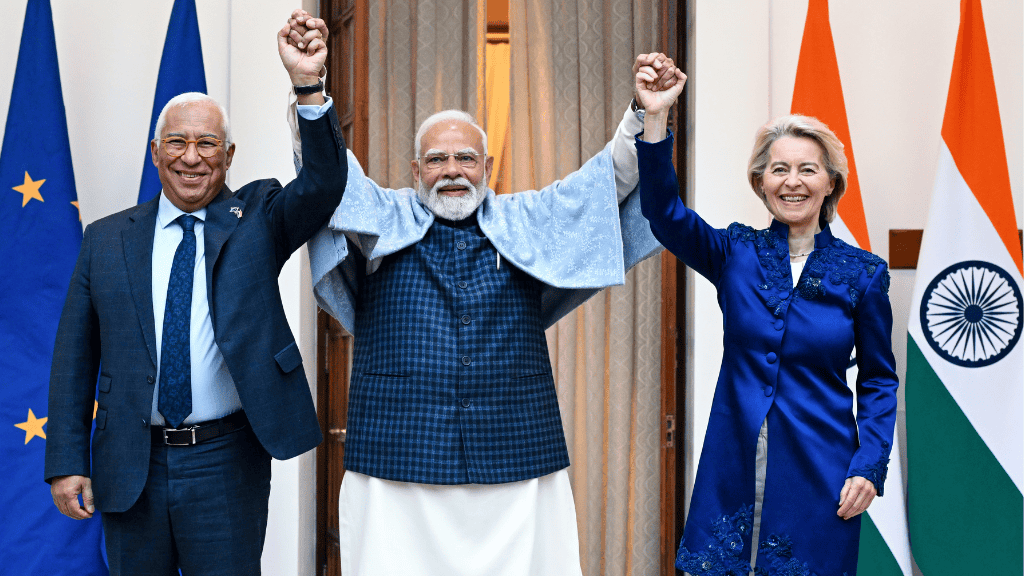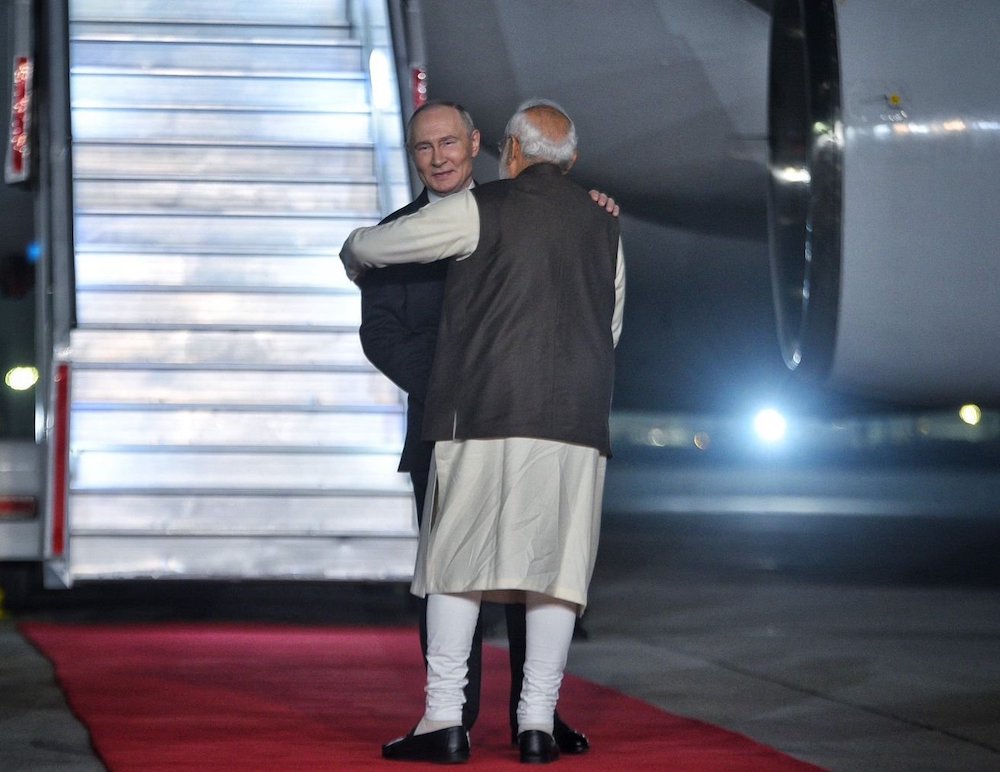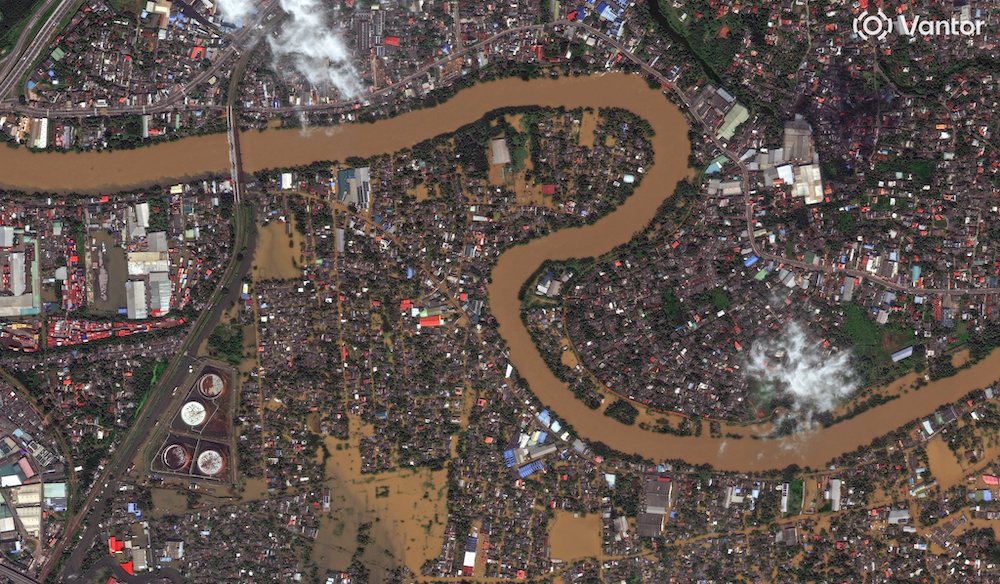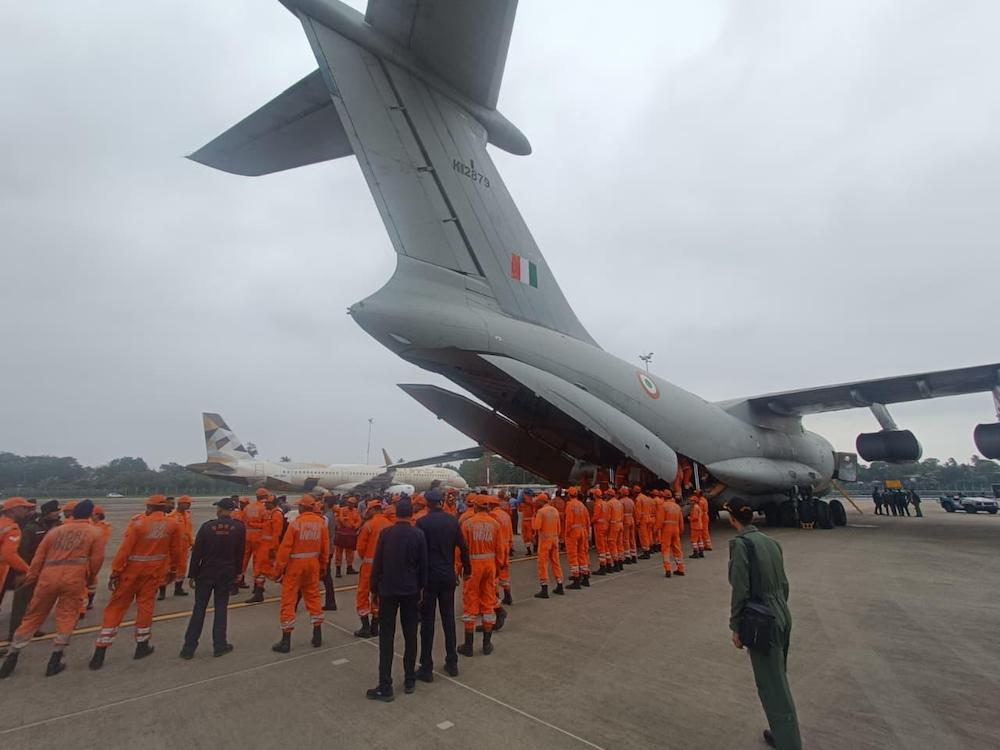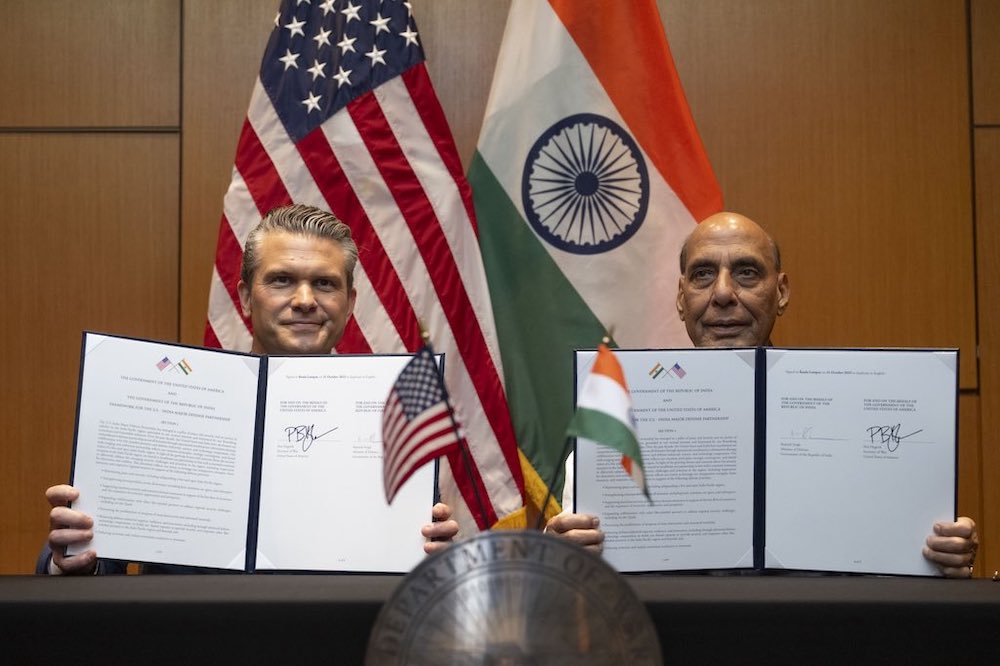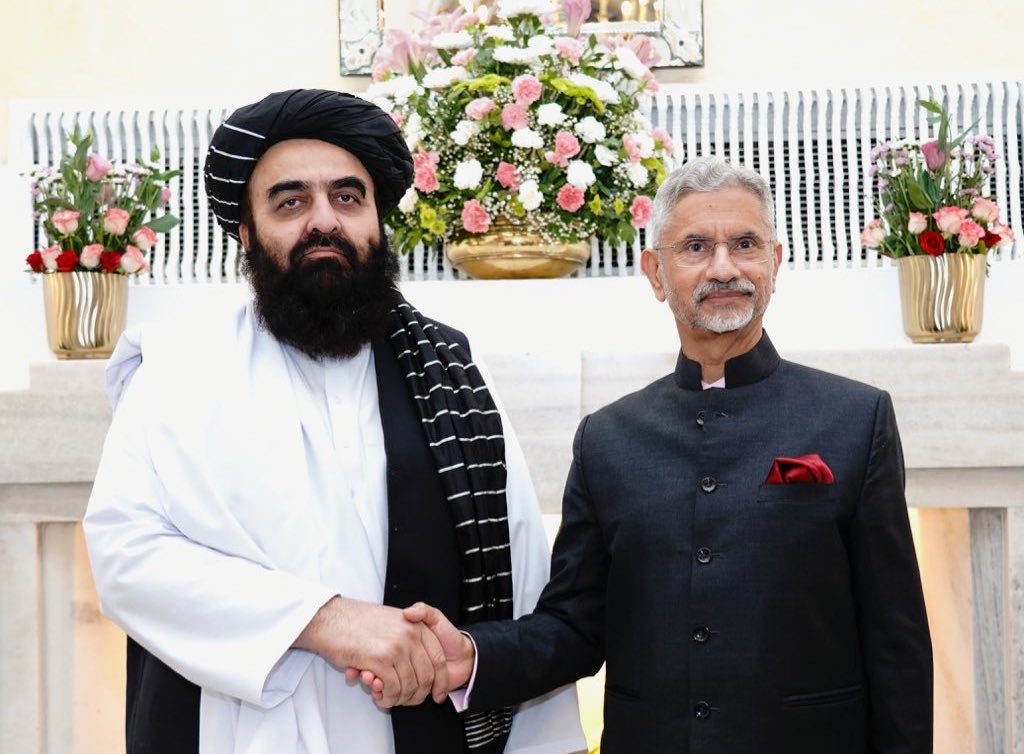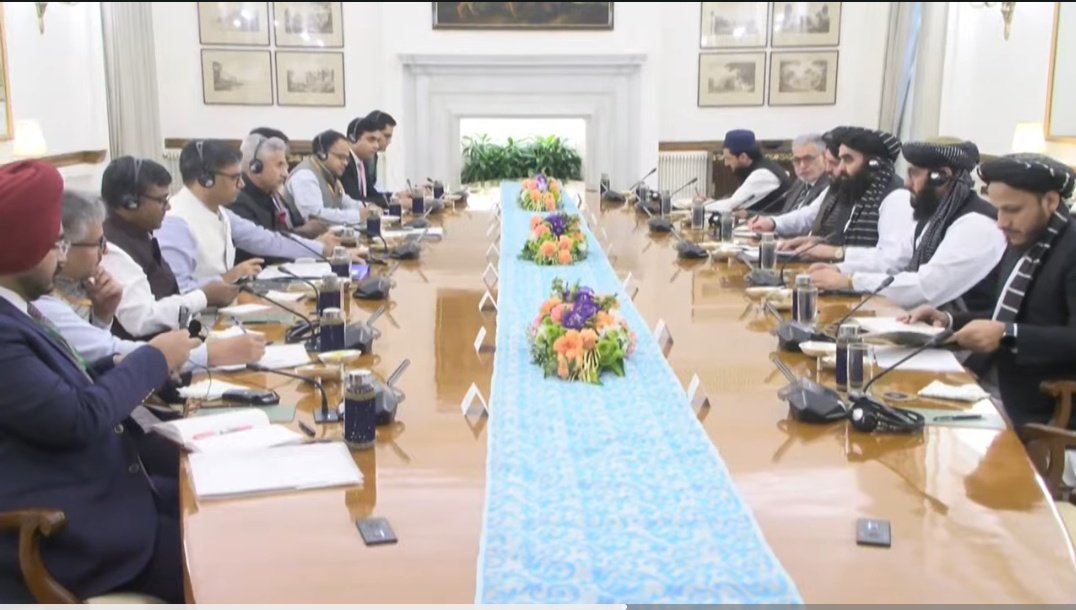 India Sentinels illustration for representation.
India Sentinels illustration for representation.
New Delhi: Bangladesh has cancelled a ₹179.75 crore ($21 million) defence contract with Kolkata-based Garden Reach Shipbuilders & Engineers Ltd (GRSE). This marks the first major defence-deal casualty between New Delhi and Dhaka since the Bangladeshi interim government led by the country’s chief advisor, Muhammad Yunus, took power following Sheikh Hasina’s ouster in August 2024.
The cancellation represents a stark escalation in diplomatic tensions between New Delhi and Dhaka, which also signals a concerning deterioration in bilateral relations that could have far-reaching implications for regional security cooperation and economic partnerships in South Asia.
The public sector shipbuilder, operating under the Ministry of Defence, formally notified stock exchanges of Bangladesh’s cancellation of the order on Wednesday. The terminated contract involved the construction of an advanced ocean-going tug for the Bangladesh Navy.
Escalating Diplomatic Crisis
The cancellation comes against the backdrop of rapidly deteriorating India-Bangladesh relations, triggered primarily by controversial statements made by Yunus during his recent visit to China. As India Sentinels had reported earlier, Yunus described India’s northeast as “landlocked” and claimed Dhaka as the “only guardian” of the ocean in the region. These remarks sparked sharp reactions in New Delhi and are widely seen as the catalyst for the current diplomatic crisis.
In response to these provocative statements, India took decisive action on May 18, 2025, by imposing significant restrictions on imports of Bangladeshi goods, including ready-made garments and processed food. According to a Directorate General of Foreign Trade notification, ready-made garments from Bangladesh have been disallowed into India through the integrated check posts in the northeast – a move that mirrors similar trade curbs imposed by Dhaka in the previous month.
Trade restrictions represent a major escalation in bilateral tensions. India had previously provided crucial transshipment facilities for Bangladeshi cargo exports to third countries. The revocation of these facilities has been particularly damaging for Bangladesh’s export-oriented economy, which relies heavily on efficient logistics chains through Indian territory to reach international markets.
Strategic Partnership Withers
The cancelled tugboat order held particular significance as it represented the first major procurement under the $500 million line of credit India extended to Bangladesh in 2023 to bolster defence cooperation. This loan was part of a broader strategic partnership initiated during the tenure of the former prime minister, Sheikh Hasina, under which India pledged over $8 billion in credit lines over the past eight years.
The defence contract’s termination marks a concerning reversal of the substantial military and strategic cooperation that had developed between the two countries under Hasina’s leadership. The Bangladesh Navy’s decision to cancel the order suggests that the interim government is willing to sacrifice crucial military capabilities to make a political statement against India’s policy decisions.
It may be worth mentioning that this development comes after Yunus, in a meeting with the deputy speaker of the Nepalese parliament’s lower house, reiterated his vision for regional cooperation, emphasizing the need for a joint economic strategy involving India’s northeastern states, Nepal, Bhutan, and Bangladesh. Ironically, highlighted the importance of regional cooperation in hydropower, healthcare, and connectivity, stating, “We have more to gain together than apart.”
The Deal and Financial Impact on GRSE
The specialized vessel was designed to be 61 metres long and 15.80 metres wide, with a draught of 4.80 metres and a depth of 6.80 metres. It was engineered with high bollard pull capacity – 76 tonnes ahead and 50 tonnes astern – and a full-load speed of at least 13 knots (around 24.08 kilometres per hour). The tug was intended to perform multiple critical maritime operations, including towing, berthing assistance, rescue missions, salvage operations, firefighting at sea, and limited pollution control.
The original contract was signed on June 30, 2024, in the presence of senior officials from both countries. It marked a notable success in India’s defence-export sector at the time. However, despite the significant value of the cancelled order, the financial impact on GRSE appears manageable. With an order book standing at ₹22,680.75 crore as of March 31, 2025, the contribution of the proposed tug for Bangladesh represented a mere 0.8 per cent of the company’s total orders.
Apart from that, despite the setback in the Bangladesh Navy deal, emerged as the lowest bidder for the construction of next-generation corvettes for the Indian Navy. This development suggests that while the Bangladesh contract cancellation represents a diplomatic blow, it is unlikely to significantly impact the company’s long-term revenue streams or operational capabilities.
The defence public sector undertaking has built a diversified portfolio that reduces its dependence on any single international contract. The company’s substantial order book of over ₹22,000 crore provides a strong foundation for continued growth, even as it deals with the challenges posed by deteriorating bilateral relations with Bangladesh.
Moreover, India’s expanding defence export ambitions and the government’s push for indigenous shipbuilding under the “Make in India” initiative are likely to provide GRSE with numerous alternative opportunities in both domestic and international markets. The company’s expertise in constructing advanced naval vessels positions it well to capitalize on India’s growing defence partnerships with other nations in the Indo-Pacific region.
Strategic Implications
Nonetheless, the cancellation of the defence contract carries significant geopolitical implications that extend beyond bilateral India-Bangladesh relations, according to geopolitical analysts and South Asia observers, especially from India. They say this move by the Yunus regime signals a potential realignment in Bangladesh’s strategic partnerships, particularly given Yunus’s recent overtures to China and his proposals to facilitate Chinese trade through Bangladeshi ports.
This development comes at a time when India is increasingly concerned about China’s growing influence in South Asia through initiatives, like the Belt and Road Initiative. Bangladesh’s decision to prioritise political posturing over practical defence needs may create opportunities for Beijing to expand its military and strategic footprint in the Bay of Bengal region.
The analysts say the deterioration in India-Bangladesh relations also undermines regional stability and cooperation frameworks that had been painstakingly built over the past decade. The breakdown of defence cooperation could have cascading effects on other areas of bilateral engagement, including border management, counterterrorism efforts, and economic partnerships.
They are mostly of the view that Bangladesh’s cancellation of the ₹180 crore defence contract with GRSE represents more than just a commercial dispute – it signals a fundamental shift in the strategic relationship between two key South Asian neighbours. While the immediate financial impact on GRSE may be limited, the broader implications for regional security cooperation and India’s defence export ambitions are concerning.

